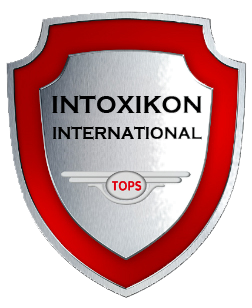History of Intoxikon International
JOHN BRICK, PHD, MA, FAPA
Founder and Executive Director

Intoxikon International is a privately held company specializing and providing education and training in alcohol and drug studies. It began with a simple idea that helped steer its mission for more than a quarter century.
Intoxikon International was established in 1993 with multiple goals. Part of our mission was to share research where it was most needed. First, this began with disseminating accurate, peer-reviewed information about the biobehavioral effects of alcohol to the general public. Second, this goal expanded to provide technical scientific information (books, journals and other treatises) to clinical researchers I met as Associate Director of the Rutgers School of Alcohol Studies and during my trips to Moscow and St. Petersburg. I was honored to be among a highly select group of American researchers and the only American scientist working in the field of alcohol studies invited to address the Russian National Academy of Medicine on their 100th Anniversary and then the Soviet Ministry of Health, Psychoneurological Institute, in Moscow. Before the current availability of everything on-line, there was a dearth of current alcohol and drug information available to scientists in academia with limited resources or where such information was difficult to obtain in a timely manner. Accurate scientific information was often not available to the public and even to some scientists.
In addition to providing articles and textbooks pro bono, we developed a series of on-line Fact Documents. These peer-reviewed papers were well ahead of their time and popular. For example, for about two years, Alcohol Poisoning remained in the top two listings (page 1) of Google searches for various permutations of this topic and remained on page one of Google searches for several years thereafter. At the time, there were very few online resources with accurate information about alcohol and other drugs written by scientists working in the field. I am proud to say that Intoxikon International was in fact, one of the earliest Internet sources of this information.
We continued our prevention efforts by initiating multiple lectures and training programs to nurses, physicians, other clinicians, law enforcement and related professions. For example, for ten straight years, over 400 people per year were trained, certified and recertified in Technical Observation ProcedureS (TOPS), a unique Train-the-Trainer alcohol prevention program I developed. The TOPS program was required training for all NJ Alcohol Beverage Control (ABC) agents and investigators (Office of the State Attorney General) and to Management and Department heads at Charlestown Races, the flagship property of Penn National, one of the largest gaming corporations in the United States. Additionally, several dozen Intoxikon workshops were provided on topics ranging from: the medical consequences of alcohol and other drugs (for physicians, nurses and other clinicians) to forensic psychopharmacology (for law enforcement agents and investigators and federal agencies).
After the 9-11-2001 attacks in Washington, D.C. and Pennsylvania, and the anthrax attacks that started in Trenton, N.J., Intoxikon International provided pro-bono training in diagnosing and treating harm from biological agents. This material was published and freely disseminated an Identification and Treatment (IDT) Matrix in Biological Warfare preparedness. At the time, there was no one simple guide for tactical first responders and medical personnel to identify signs and treat consequences of the most common biological weapons. The IDT Matrix was distributed to local, county and state agencies in New Jersey and Pennsylvania. Copies were also requested by Infraguard (an FBI-civilian interface), INTERPOL, The New Jersey Medical Society and Saint Elizabeth’s Hospital (the ground zero anthrax treatment center in Trenton NJ) and distributed to hundreds of law enforcement and first responders in the region. The IDT Matrix continues to be available on this website under Publications.
The third goal was to provide seed money and limited grant support. The creation of Intoxikon International Fellowships was a further extension of our prevention efforts, wherein we sought to identify ordinary people who did extraordinary work to prevent and treat a range of alcohol and drug related biopsychosocial problems.
We recognized those Fellows with a tax-free, non-contingent gift of up to $500.00 to extraordinarily dedicated people in the prevention field along with a framed award and local press packet. In addition, small research equipment grants of up to $500.00 were also awarded to individuals or organizations as start-up funds. To our credit, this mission caught the attention of state and private organizations that expressed interest in providing funds to further our mission. However, because of the potential perception that support from special interest or other groups may influence or create a bias (a topic of increasing interest – see Babor (2019) Journal of Studies on Alcohol and Drugs 80(2): 196-200), those offers were not pursued. Instead, 100% of all awards and grants (including associated costs) were funded exclusively from the royalties I received from the sale of my books. The recipients selected for those awards were chosen, in part, based on applications submitted by members of the Intoxikon Advisory Board who found deserving recipients.
The Intoxikon International Fellowship awards program ended in January 2020. It was the close of an era and part of a prevention journey that reached literally thousands of people but started with a simple idea – help others. Various prevention related publications and works of interest in the field of alcohol and drug studies are currently available on the website and in my curriculum vitae.
January 2025
JOHN BRICK, PHD, MA, FAPA



